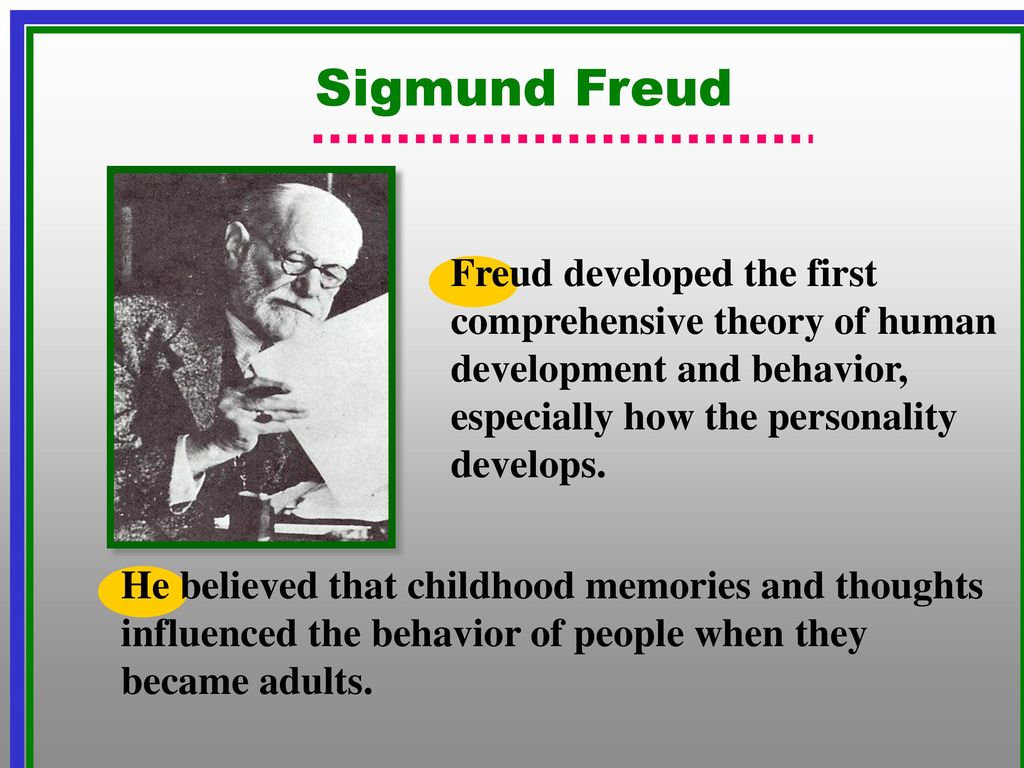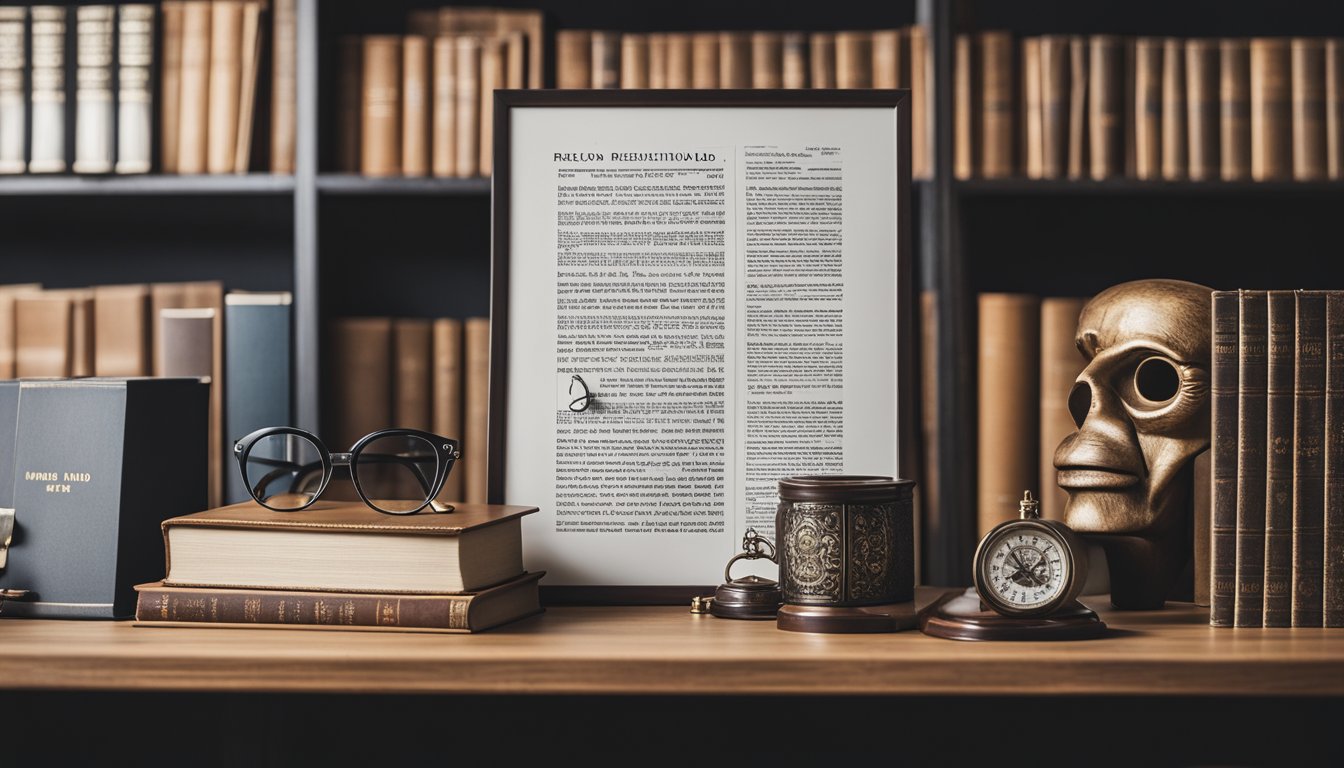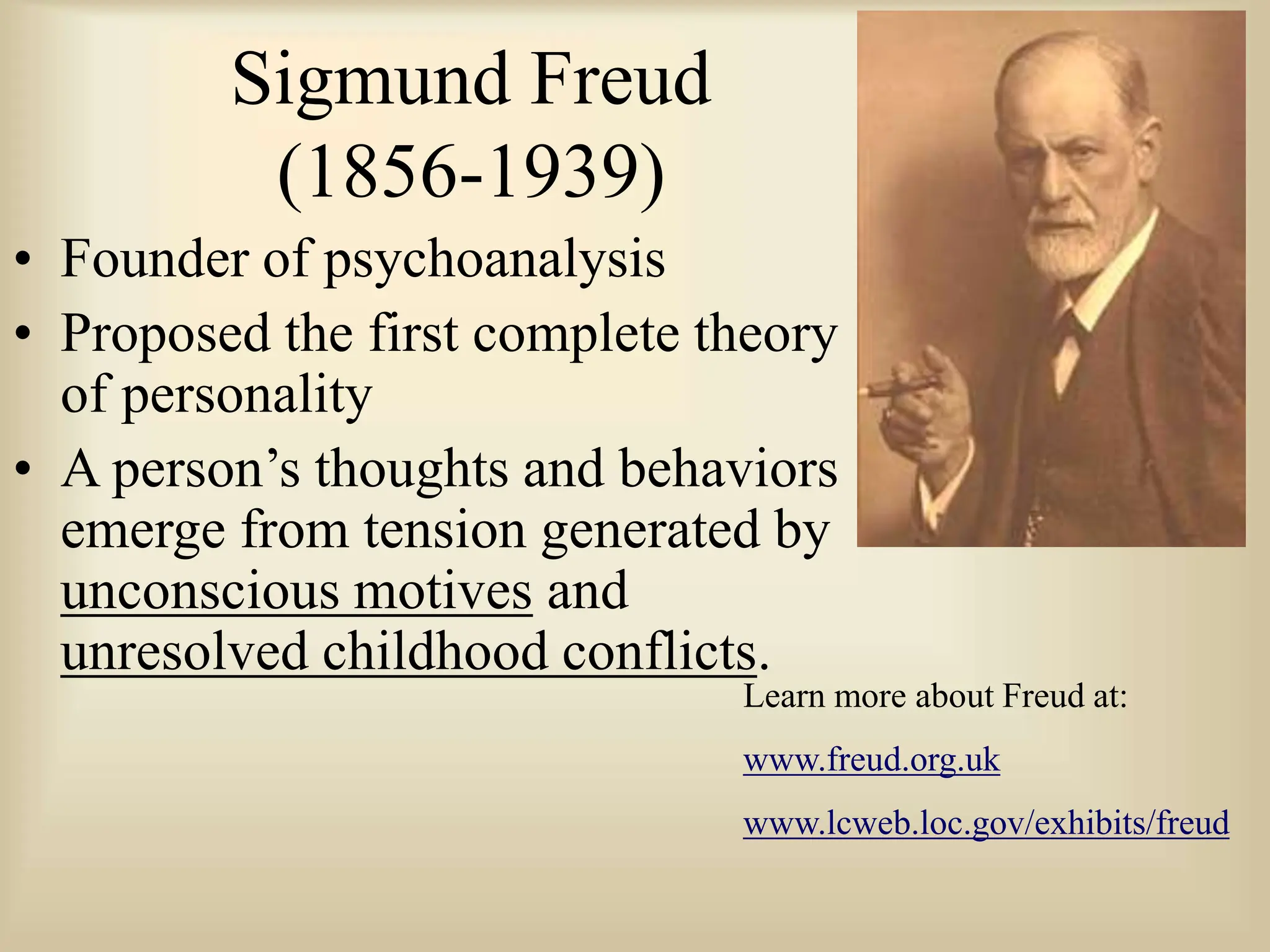Who Developed The First Comprehensive Theory Of Personality

The quest to understand the human personality took a monumental leap forward in the late 19th and early 20th centuries. Sigmund Freud, an Austrian neurologist, is widely credited with developing the first comprehensive theory of personality, a framework that continues to influence psychology today.
Freud's psychoanalytic theory, a groundbreaking approach to understanding the complexities of human behavior, delved into the unconscious mind. This innovative framework, while debated and revised over time, laid the foundation for subsequent personality theories and therapeutic practices.
The Architect of the Unconscious: Sigmund Freud
Sigmund Freud (1856-1939), born in Freiberg, Moravia (now the Czech Republic), revolutionized the field of psychology. He challenged prevailing views by emphasizing the role of unconscious processes in shaping personality and behavior. This challenge sparked a paradigm shift in how we understand ourselves.
The Birth of Psychoanalytic Theory
Freud's theory, developed over several decades, proposed that the human psyche is structured into three key components: the id, ego, and superego. These structures are not physical entities, but rather conceptual models used to explain different aspects of mental function.
The id operates on the pleasure principle, seeking immediate gratification of desires and drives. In contrast, the ego operates on the reality principle, mediating between the id's impulses and the demands of the external world. The superego represents internalized societal and parental values, guiding moral behavior.
He posited that personality develops through a series of psychosexual stages, each characterized by a specific erogenous zone. Fixation at any stage, according to Freud, could lead to specific personality traits in adulthood. These stages are oral, anal, phallic, latency, and genital.
The Methods: Unlocking the Unconscious
Freud developed several techniques to access the unconscious mind, including dream analysis and free association. Dream analysis involved interpreting the symbolic content of dreams to reveal hidden desires and conflicts. Free association encouraged patients to speak freely, without censorship, allowing unconscious thoughts to surface.
His clinical observations of patients with neuroses provided the empirical basis for his theoretical formulations. These observations allowed him to observe the impact of repressed memories and unresolved conflicts on psychological well-being. He carefully examined the patient's narratives to look for repeating patterns.
Impact and Legacy
Freud's work has had a profound and lasting impact on psychology, literature, art, and popular culture. His concepts, such as the Oedipus complex, defense mechanisms, and the unconscious, have become ingrained in our understanding of the human psyche. He fundamentally altered how mental illness was perceived.
While many of Freud's specific theories have been challenged and revised over time, his emphasis on the unconscious and the importance of early childhood experiences remains influential. His work spurred the development of numerous alternative personality theories.
Criticisms and Revisions
Freud's theory has faced numerous criticisms, including its lack of empirical support and its reliance on subjective interpretations. Some critics have also pointed to its gender bias and its overemphasis on sexuality. Despite these criticisms, Freud's work continues to be studied and debated.
Neo-Freudians, such as Carl Jung, Alfred Adler, and Karen Horney, expanded upon Freud's ideas while also diverging in important ways. Their revisions led to the development of psychodynamic theories that focused on social and cultural factors in personality development.
The Future of Personality Theory
Today, personality psychology encompasses a wide range of perspectives, including trait theories, social-cognitive theories, and humanistic theories. These theories incorporate empirical research methods and address some of the limitations of Freud's original framework.
Ongoing research continues to refine our understanding of personality, exploring the interplay of genetics, environment, and individual experiences. Future advancements in neuroscience may provide further insights into the biological underpinnings of personality traits.












+Wilhelm+Wundt+b)+Sigmund+Freud+c)+William+James+d)+John+Watson+e)+Carl+Rogers.jpg)





